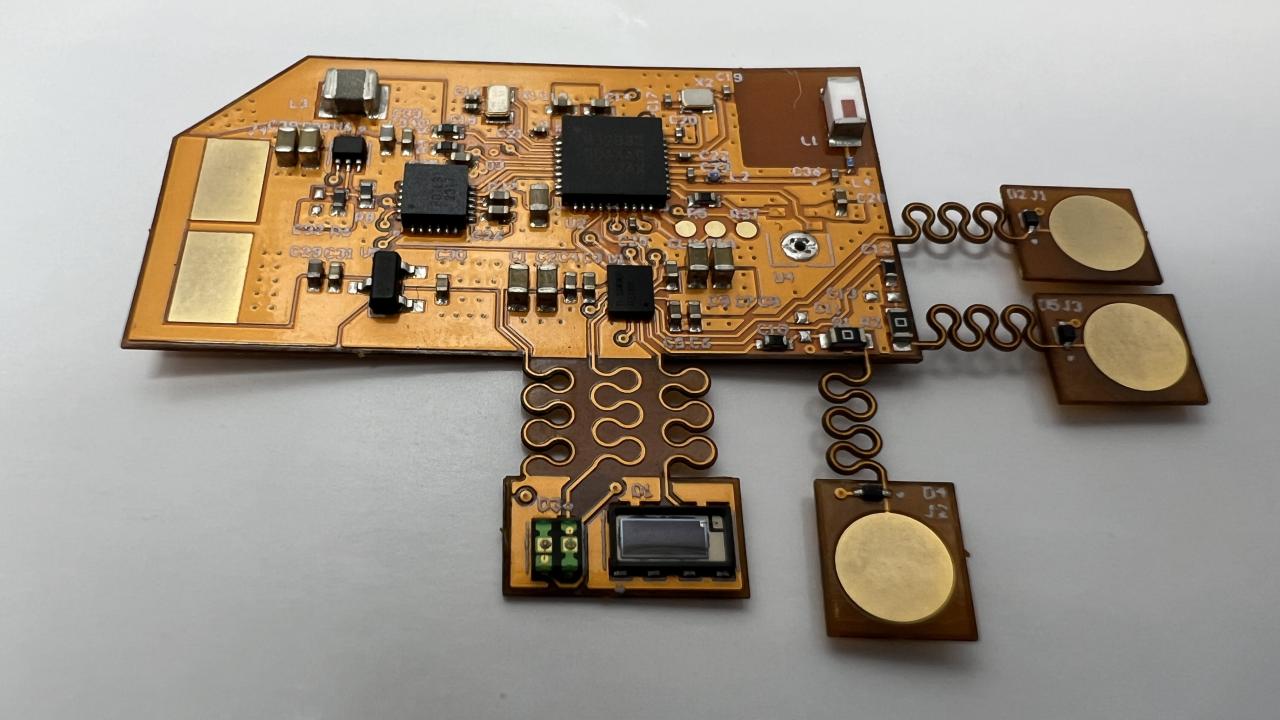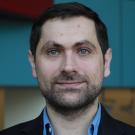
Master's Student Receives Inaugural Poster Award for Innovative Sleep Apnea Project
Master's student Thomas Liang has received the inaugural M.S. Poster Award from the Department of Electrical and Computer Engineering at the University of California, Davis.
The award recognizes the best poster produced by a Master of Science student in Plan II, a pathway in the department's M.S. program in which students develop a capstone project instead of a thesis.
Liang's poster described his capstone project in Assistant Professor Hyoyoung Jeong's lab to create a wearable sleep apnea monitor. On a flexible printed circuit board, Liang has shown that a suite of sensors, such as an electrocardiogram, IMU and photoplethysmogram, can provide robust and accurate health data relevant to sleep apnea.

"Liang's innovative project combines advanced sensing technology, signal processing and machine learning to develop a unique platform to detect and classify episodes of apnea," said J. Sebastian Gomez-Diaz, a professor of electrical and computer engineering and the director of his department's M.S. program. "This project not only reflects his exceptional technical skills, dedication and hard work, but also highlights the high caliber of M.S. students in the ECE department at UC Davis."
Liang graduated with his Master of Science degree in electrical and computer engineering in June, following his successful completion of the department's Integrated Degree Program, which allows undergraduate students to complete a master's degree in one year. Now, he plans to work as a system design engineer at NVIDIA.
"I am grateful for my undergraduate years at UC Davis, which have provided me with a solid electrical engineering foundation," Liang said. "I'm honored that my research has been recognized, and I hope that more students are inspired to pursue research at UC Davis."
Undergraduates in Jeong's research lab will continue to refine Liang's project by adding LED lights that indicate the system's battery life and sensor status, and improving the hardware's durability. The goal is to transform the printed circuit board into an e-tattoo, an ultrathin device that adheres to the skin, to improve usability and comfort.


